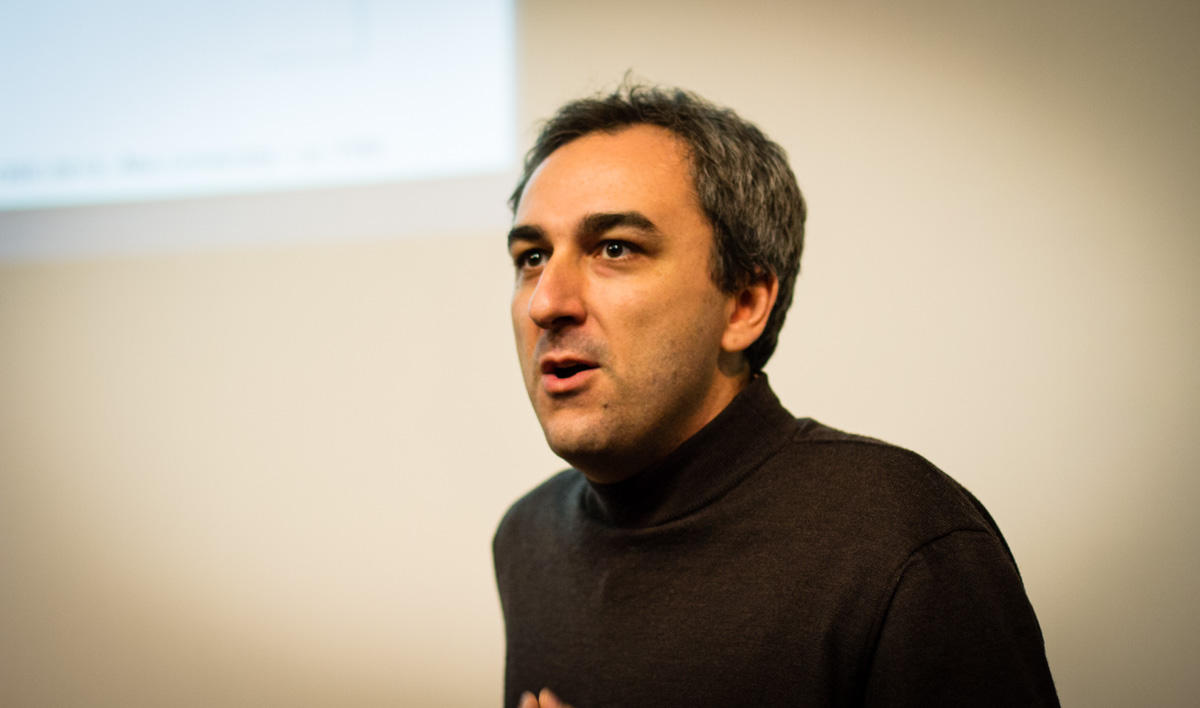
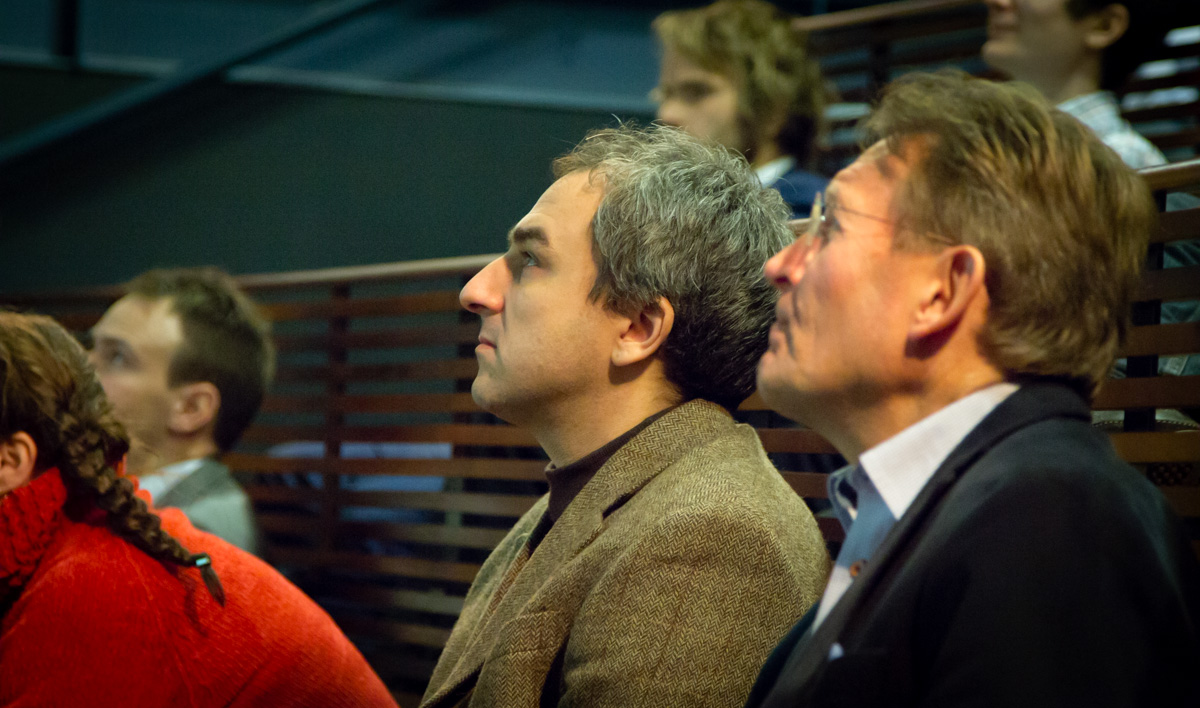
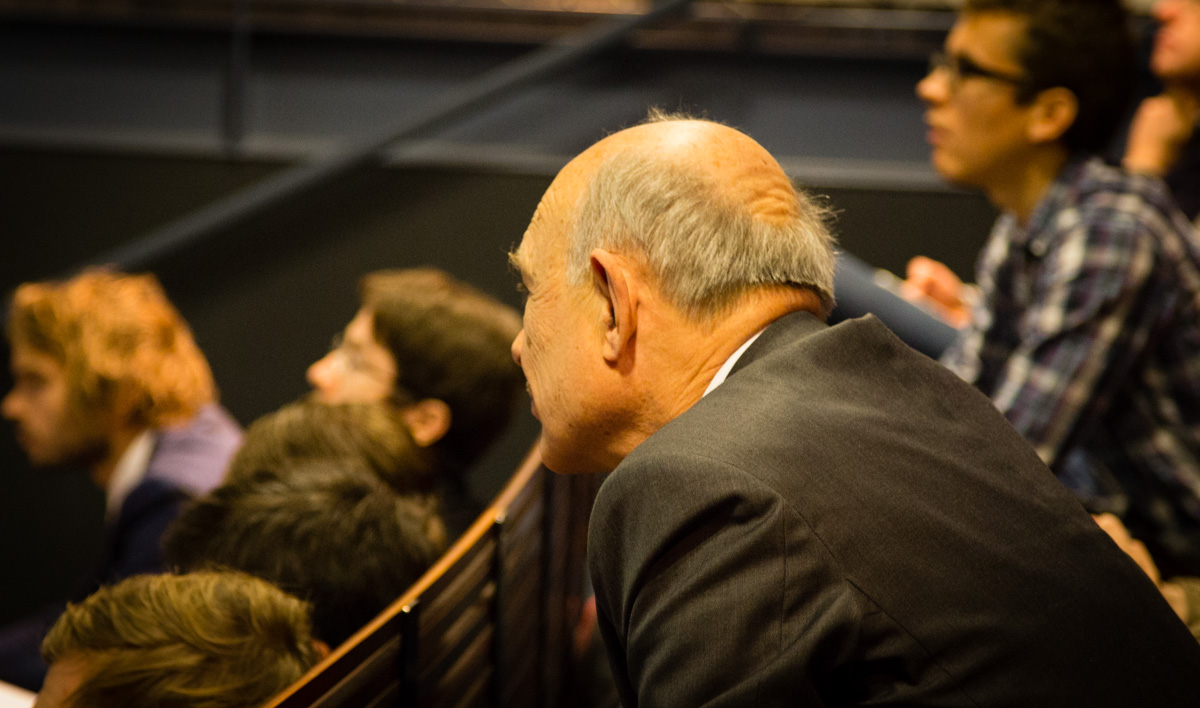
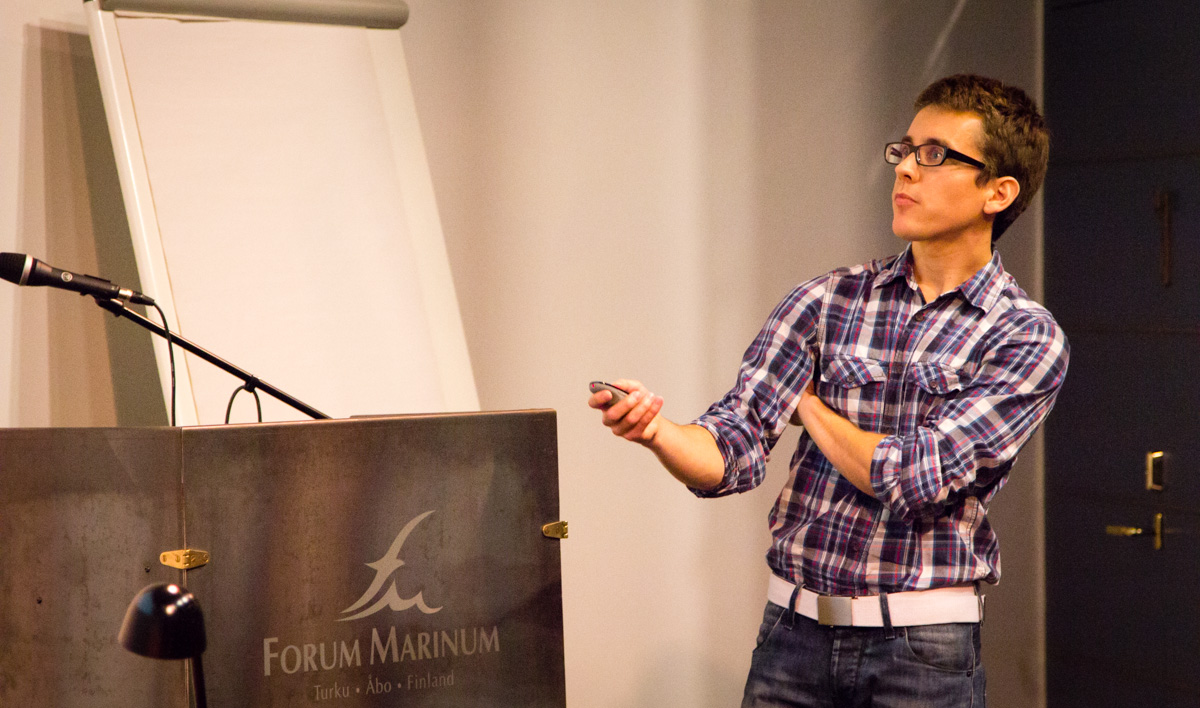
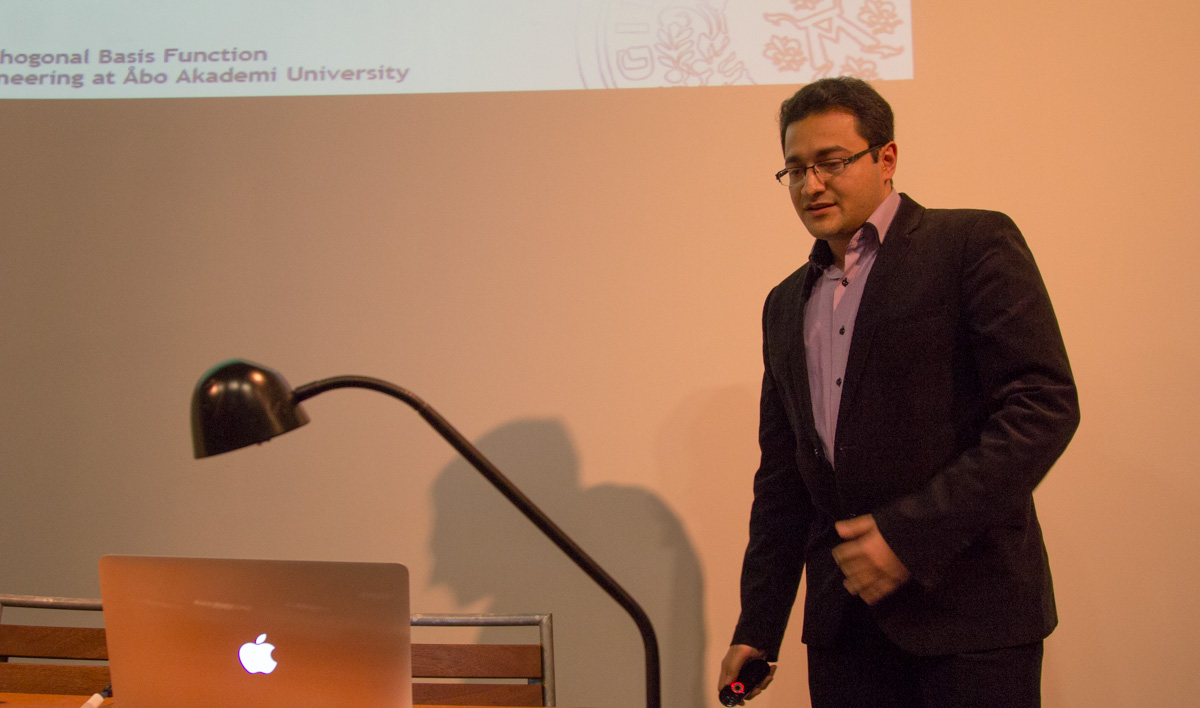
Annual seminar 2013
November 15, 2013 Andreas Lundell Events
Techniques based on graph theory was the central topic of the plenary lectures given at the annual seminar in Optimization and Systems Engineering 2013 by professor Leo Liberty from École polytechnique in Paris, France, currently active at IBM Thomas J. Watson Research Center in New York, USA. Professor Liberti is also a member of the OSE group’s International Scientific Panel. The 2013 seminar took place at Forum Marinum, Turku on November 15th.
Prof. Liberti held the following two keynote presentations:
- Symmetry in mathematical programming
- Distance constraints in Euclidean geometry
In the first presentation, a class of symmetry breaking methods based on reformulation techniques were illustrated. These may be used as an efficient presolving step of branch-and-bound based methods. In the second presentation, the topic was a significant problem in distance geometry connected to graph theory, with applications in protein conformation, wireless sensor network design and robotic control.
Professor Liberti has published more than 150 papers on mathematical programming, global and combinatorial optimization, distance geometry, bioinformatics, and industrial systems applications. He is also the author and editor of several books in optimization including “Distance Geometry: Theory, Methods and Applications” coedited with A. Mucherino, C. Lavor and N. Maculan, Springer New York, 2013, and “Global Optimization: from Theory to Implementation” coedited with N. Maculan, Springer Berlin, 2006.
Presentations at the seminar:
Morning session, chairman Professor Tapio Westerlund:
- Tapio Westerlund – Opening statement
- Leo Liberti – Symmetry in mathematical programming
- Leo Liberti – Distance constraints in Euclidean geometry
Afternoon session, chairman Dr Andreas Lundell:
- Mikael Nyberg, Weather routing – using dynamic programming to win sailing races
- Johan Pensar, Marginal pseudo-likelihood: A Bayesian approach for learning the graph structure of a Markov network
- Anders Skjäl, Complexity theory for the global optimizer
- Amir Shirdel, Trend and System Identification With Orthogonal Basis Function
- Axel Nyberg, Applications of the Quadratic Assignment Problem
- Otto Nissfolk, Reformulation of 0-1 Quadratic Programs
- Henrik Nyman, Stratified Gaussian Graphical Models
